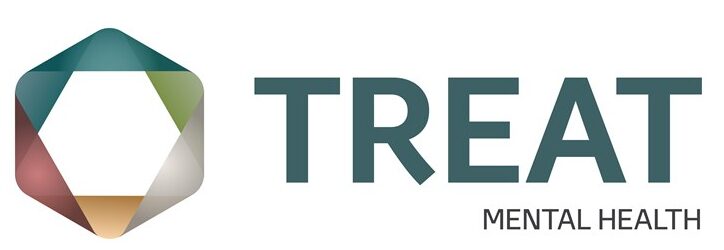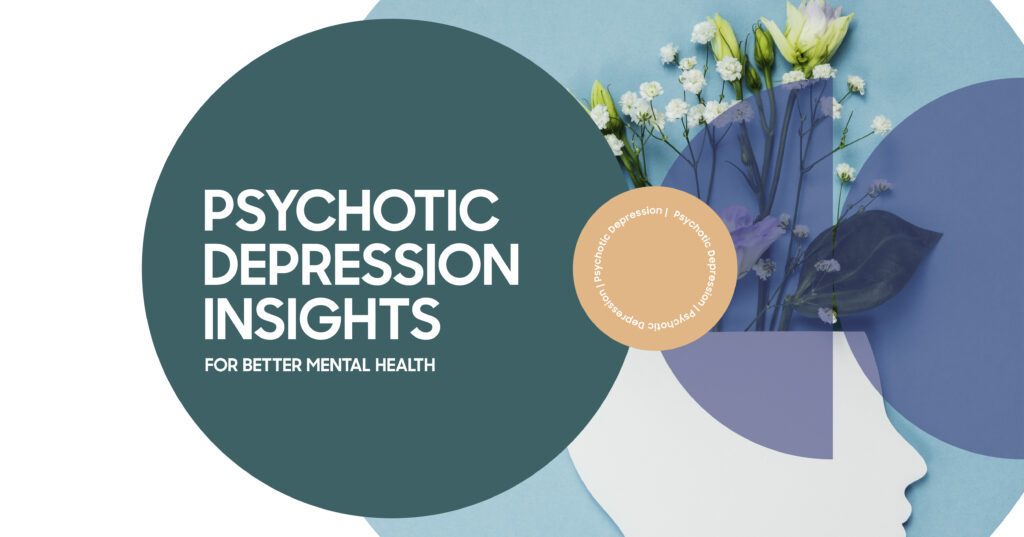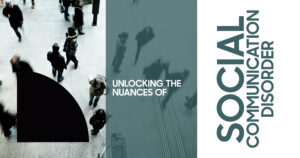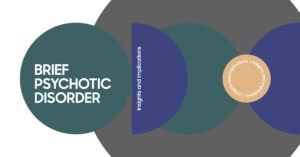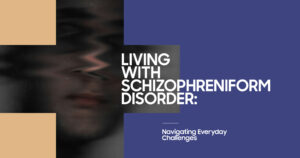Psychotic depression is a severe mental health condition where major depressive disorder is accompanied by symptoms of psychosis, such as hallucinations or delusions. This combination can be overwhelming, making it one of the most urgent psychiatric conditions to treat. While depression alone can drain motivation and cloud judgment, adding psychosis intensifies the suffering, distorts reality, and increases the risk of harm.
This condition requires immediate professional attention because untreated psychotic depression can severely impact safety, relationships, and the ability to function in daily life. The good news is that with timely intervention – including a combination of medication, therapy, and ongoing support – recovery is possible.
Understanding Psychotic Depression
Psychotic depression is classified under major depressive disorder with psychotic features in the DSM-5. It occurs when someone experiencing severe depression also develops psychosis – false beliefs (delusions) or false perceptions (hallucinations). The psychotic content often aligns with depressive themes, such as worthlessness, guilt, or hopelessness.
This disorder is relatively rare, affecting about 1 in 1,000 adults annually, but it is more common in hospitalized psychiatric patients.

Causes and Symptoms to Watch For
Psychotic depression doesn’t have a single cause – it arises from a mix of biological, psychological, and environmental factors.
Key contributing factors include:
- A family history of depression, bipolar disorder, or psychosis increases risk.
- Altered serotonin, dopamine, and norepinephrine levels affect mood and perception.
- Severe Stress or Trauma. Life events such as grief, abuse, or chronic stress can trigger symptoms.
- Certain neurological or endocrine disorders can contribute to the onset.
Common symptoms include:
- Persistent sadness, hopelessness, or loss of interest in daily activities.
- Delusions related to guilt, poverty, illness, or unworthiness.
- Hallucinations (auditory or visual) that reinforce depressive thoughts.
- Fatigue, sleep disturbances, and changes in appetite.
- Difficulty concentrating, slowed thinking, or indecision.
- Withdrawal from social connections.
Diagnosing Psychotic Depression Accurately
Accurate diagnosis is critical because psychotic depression can be mistaken for schizophrenia, bipolar disorder, or severe non-psychotic depression. Misdiagnosis can delay appropriate treatment.
The diagnostic process involves:
| Diagnostic Step | Purpose |
| Comprehensive Clinical Interview | To assess mood, thought patterns, and psychotic symptoms. |
| Medical Evaluation | To rule out neurological or physical illnesses. |
| Psychological Testing | To clarify the nature and severity of symptoms. |
Exploring Treatment Options for Psychotic Depression
Psychotic depression is best managed through a combination of therapies, as medication alone or therapy alone is often insufficient.
Treatment approaches generally include:
- Antipsychotic medication to address psychosis.
- Antidepressant therapy to improve mood.
- Psychotherapy, particularly cognitive behavioral therapy (CBT), to address thought distortions.
- Electroconvulsive Therapy (ECT) for severe or treatment-resistant cases.
The Role of Antipsychotic Medication in Recovery
Antipsychotic medications are a cornerstone in treating the psychotic features of this disorder. They work by modulating dopamine and serotonin activity, reducing hallucinations and delusional thinking.
Common antipsychotic medications for psychotic depression are as follows:
| Medication | Class | Primary Benefit | Notable Considerations |
| Risperidone | Atypical Antipsychotic | Reduces delusions, hallucinations | May cause weight gain, sedation |
| Olanzapine | Atypical Antipsychotic | Calms agitation, improves mood stability | Risk of metabolic side effects |
| Quetiapine | Atypical Antipsychotic | Improves sleep, reduces psychotic symptoms | Can cause drowsiness |
| Haloperidol | Typical Antipsychotic | Strong antipsychotic effect | Higher risk of movement side effects |
How Cognitive Behavioral Therapy Supports Healing
While medication addresses brain chemistry, CBT tackles thought patterns that fuel depression and psychosis. In CBT, patients learn to:
- Recognize distorted thinking.
- Challenge delusional beliefs with evidence-based reasoning.
- Develop coping strategies for stress and anxiety.
- Rebuild confidence and problem-solving skills.
Antidepressant Therapy and Its Effectiveness
Antidepressants are essential for lifting the depressive symptoms of psychotic depression. They work by balancing neurotransmitters that regulate mood and energy. Research suggests that combination therapy – an antipsychotic plus an antidepressant – is more effective than monotherapy in achieving remission.
Common classes include:
- SSRIs (Selective Serotonin Reuptake Inhibitors)
- SNRIs (Serotonin-Norepinephrine Reuptake Inhibitors)
- Tricyclic Antidepressants
Addressing the Challenge of Treatment-Resistant Depression
In some cases, symptoms persist despite standard treatment. This is referred to as treatment-resistant depression (TRD). Psychotic depression can be particularly stubborn because psychotic features intensify depressive symptoms and reduce treatment adherence.
Options for TRD include:
- Electroconvulsive Therapy (ECT) – highly effective for severe cases.
- Switching or combining medications.
- Augmentation with mood stabilizers.
- Intensive psychotherapy.
The Daily Reality of Living with Major Depression and Psychosis
Living with psychotic depression can be exhausting and isolating. People often struggle with both the weight of depression and the distortion of psychosis, making everyday activities challenging.
Daily impacts may include:
- Difficulty holding a job or maintaining school attendance.
- Strained family and social relationships.
- Ongoing fear or paranoia related to delusional thinking.
- Poor self-care and declining physical health.
Get Help Insight For Better Mental Health: Contact Treat Mental Health
If you or a loved one is experiencing psychotic depression, early and comprehensive treatment can make all the difference. At Treat Mental Health, our specialists provide evidence-based care tailored to each individual’s needs, combining medication management, therapy, and compassionate support.
Contact Treat Mental Health today to start your recovery journey with a trusted mental health team.

FAQs
- What are the common symptoms indicating a combination of major depressive disorder and psychosis?
They include persistent sadness, loss of interest, and fatigue, alongside delusions or hallucinations. The psychotic content often matches the depressive themes, such as guilt or hopelessness.
- How is psychotic depression different from other mood disorders in terms of diagnosis and treatment?
Unlike non-psychotic depression, psychotic depression includes hallucinations or delusions that require antipsychotic medication in addition to antidepressants. Accurate diagnosis ensures both aspects are treated.
- What role does antipsychotic medication play in the management of treatment-resistant depression?
Antipsychotics can reduce hallucinations and delusions, making it easier for other treatments – like antidepressants or therapy – to work. They are often essential in treatment-resistant cases.
- How effective is cognitive behavioral therapy compared to antidepressant therapy in treating psychotic depression?
CBT helps challenge false beliefs and improve coping skills, while antidepressants target brain chemistry to lift mood. Both are most effective when used together.
- Why is mental health support crucial for individuals living with major depressive disorder and psychosis?
Ongoing support helps manage symptoms, prevent relapse, and improve daily functioning. It also reduces isolation and promotes long-term recovery.

